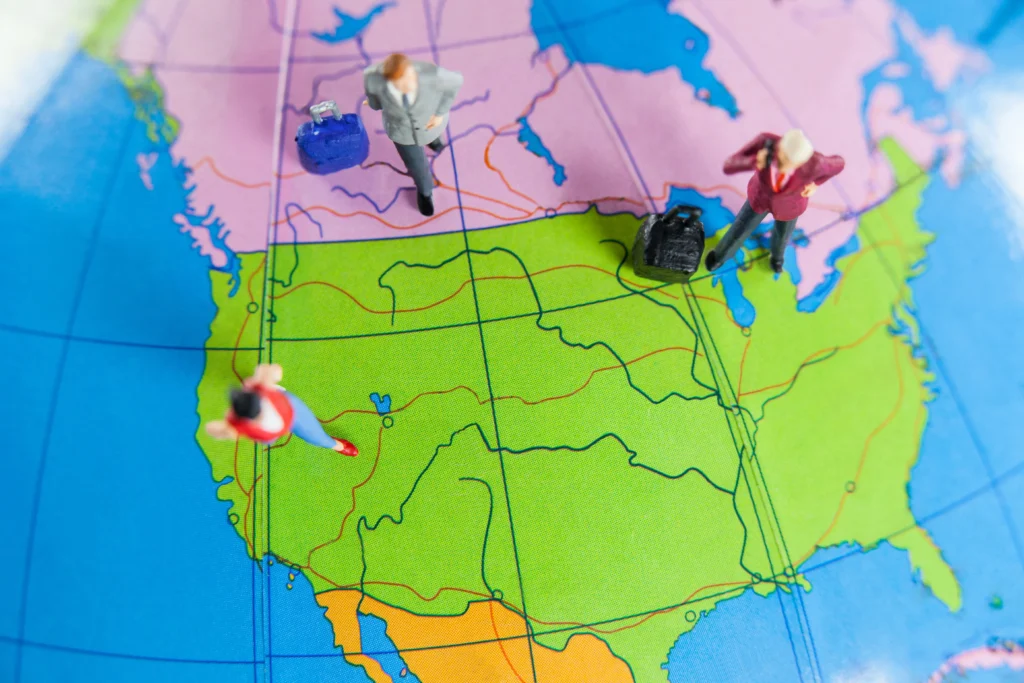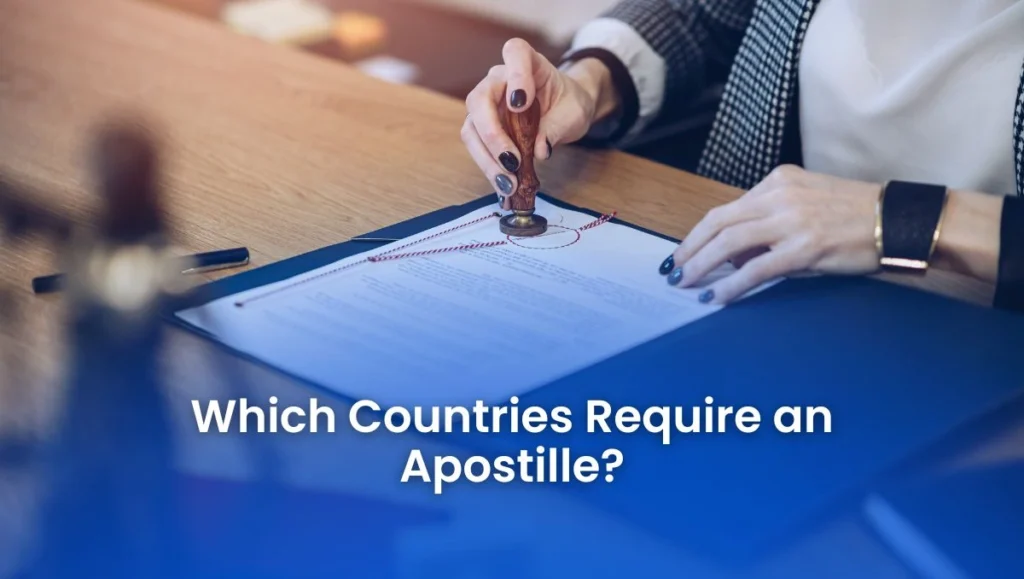Over 100 countries require apostille certification which plays a significant role in international document recognition. Canada became a member of this global network on January 11, 2024, joining the Apostille Convention (Hague Treaty Convention 12). The United States, United Kingdom, Germany, France, and Japan already use this optimized authentication system.
International document requirements can be complex and confusing. This guide explains which countries need an apostille and shows how document verification works seamlessly between nations. Your international dealings require proper authentication of legal documents, business contracts, and personal certificates.
What is an Apostille and Why It Matters
An apostille is an official certificate that proves the authenticity of public documents when they cross international borders. It acts as a verification tool that helps documents from one country gain legal recognition in another.
What an Apostille Certifies:
The apostille certification confirms three significant elements of a document:
- The signature’s authenticity on the document
- The signer’s official capacity
- Any seal or stamp’s identity on the document
People often misunderstand the apostille. They don’t verify the document’s contents – they only prove its origins and authenticity.
Apostille vs. Authentication: Understanding the Difference
| Feature | Apostille | Authentication |
| Used for | Documents going to Hague Convention member countries | Documents going to non-Hague Convention countries |
| Issued by | Secretary of State or U.S. Department of State | U.S. Department of State or equivalent authorities |
| Purpose | Makes document verification efficient | Achieves same recognition goal through different process |
| Legal basis | 1961 Hague Convention Treaty | Bilateral agreements and traditional legalization |
Documents Commonly Requiring Apostilles:
Several official documents need apostilles for international use, including:
- Birth and death certificates
- Marriage and divorce certificates
- Court documents and educational diplomas
- Corporate documents and power of attorney
Why Apostilles Matter:
Apostilles makes document verification simple by replacing the complex “chain of authentication” with a single-step system. They are a vital part of international processes such as immigration applications, work permits, foreign marriage registration, and international adoptions.
State documents receive apostilles from their state’s Secretary of State, while federal documents get them from the U.S. Department of State. Texas has introduced “universal apostilles” that works for all destination countries. Please note that currently Texas is the only state that offers this, Oregon does not issue Universal Apostilles.
Countries That Require an Apostille (With Table)

The Apostille Convention has 127 Contracting Parties worldwide as of 2025. This international treaty has grown steadily since 1965 and made document authentication simpler around the globe.
Recent Additions to the Convention
The Apostille network welcomed several major countries:
- China: Acceded on March 8, 2023, with the Convention entering force on November 7, 2023
- Canada: Joined on January 11, 2024
- Rwanda: Implemented the Convention starting June 5, 2024
- Bangladesh: Effective March 30, 2025
China’s adoption of the system has proven successful. The country has produced over 800,000 apostilles since implementation, showing how this simpler process helps its citizens.
Countries by Region That Recognize Apostilles
| Region | Notable Countries |
| Europe | Albania, Austria, Belgium, Croatia, Czech Republic, Denmark, Finland, France, Germany, Greece, Hungary, Iceland, Ireland, Italy, Latvia, Lithuania, Netherlands, Norway, Poland, Portugal, Romania, Spain, Sweden, Switzerland, United Kingdom |
| Americas | Argentina, Bahamas, Brazil, Canada, Chile, Colombia, Costa Rica, Ecuador, El Salvador, Guatemala, Honduras, Mexico, Panama, Peru, United States, Uruguay, Venezuela |
| Asia | Armenia, Azerbaijan, Bahrain, China (including Hong Kong & Macao), India, Indonesia, Israel, Japan, Kazakhstan, South Korea, Kyrgyzstan, Mongolia, Oman, Pakistan, Philippines, Saudi Arabia, Singapore, Tajikistan, Turkey |
| Africa | Botswana, Burundi, Cape Verde, Lesotho, Liberia, Malawi, Morocco, Namibia, Rwanda, Seychelles, South Africa, Tunisia |
| Oceania | Australia, Cook Islands, Fiji, Marshall Islands, New Zealand, Samoa, Tonga, Vanuatu |
Non-Apostille Countries
Countries outside the Convention still need traditional legalization through embassies or consulates. Iran, Lebanon, Malaysia, and Vietnam have shown interest in joining. Their addition would help expand the apostille network worldwide.
What If a Country Is Not Part of the Apostille Convention?

Countries outside the Apostille Convention need a different authentication process. These nations need an authentication certificate through a more complex procedure instead of the simplified apostille.
Authentication Process for Non-Hague Countries
Documents sent to non-Apostille countries require a multi-step authentication process:
| Document Type | Authentication Steps | Typical Processing Time |
| Government/Federal Documents | 1. US Department of State Authentication2. Embassy Legalization | Approximately 9 days |
| State/Notarized Documents | 1. Secretary of State Certification2. US Department of State Authentication3. Embassy Legalization | Approximately 11 days |
This process, known as embassy legalization, serves the same purpose as an apostille but needs extra steps based on your document type and destination country.
Notable Non-Apostille Countries
This table explains some major countries that stay outside the Hague Convention network:
| Region | Representative Non-Apostille Countries |
| Middle East | Iran, Iraq, Kuwait, Lebanon, Qatar, UAE, Yemen |
| Africa | Algeria, Angola, Ethiopia, Ghana, Kenya, Nigeria, Sudan, Tanzania, Uganda, Zimbabwe |
| Asia | Afghanistan, Cambodia, Myanmar, Nepal, Taiwan, Turkmenistan |
| Americas | Cuba, Haiti, Jamaica |
About 51 countries worldwide have not joined the Apostille Convention as of 2024. This list represents just a part of them.
You should contact your destination country’s embassy or consulate before submitting documents. Many nations have specific requirements for document legalization despite standard procedures.
Document authentication requirements can be different by a lot between countries. Some consulates might waive requirements for certain document types. The authentication process is different from apostille in basic ways because it validates documents through bilateral agreements rather than the Hague Convention framework.
Conclusion
Apostille requirements are crucial for anyone who needs to handle international documents. The standard for document authentication now includes 127 countries that accept apostilles, though different rules apply to non-member nations.
Here’s a quick reference guide for document authentication:
| Document Destination | Required Process | Processing Time |
| Apostille Countries | Single-step apostille certification | 2-5 business days |
| Non-Member Countries | Multi-step embassy authentication | 9-11 business days |
The system’s growing acceptance is evident with recent additions like China and Canada. You should check current requirements before submitting documents since procedures might change. Traditional authentication methods through embassies or consulates are necessary for countries outside the Convention.
Note that apostilles only verify the document’s authenticity, not its contents. Your documents will receive recognition across borders with proper authentication, whether they are personal certificates, business contracts, or legal papers.
Need Help Navigating Apostille or Embassy Legalization?
Whether your documents are headed to Canada, China, or beyond, Oregon Apostille Hub ensures they’re properly authenticated—fast, accurate, and stress-free. We handle both apostille certification and multi-step embassy processing for non-member countries.
Reach out today for expert guidance and get your international documents approved without delays. Request a quote or speak with our team now!

